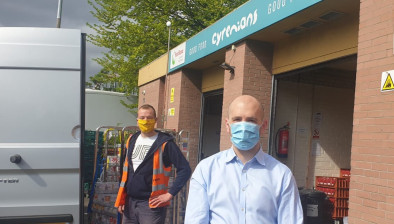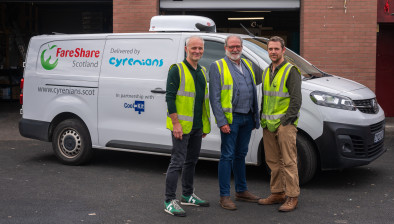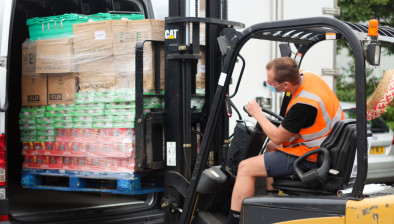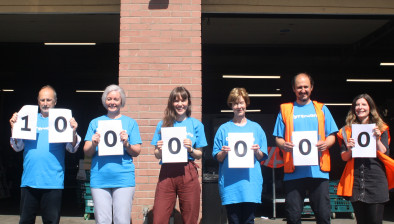Scottish Government funds community projects £1m for Brexit relief
 The Scottish Government has announced that it will provide an extra £1 million to community projects which help low-income households to eat, to deal with the additional pressures of Brexit.
The Scottish Government has announced that it will provide an extra £1 million to community projects which help low-income households to eat, to deal with the additional pressures of Brexit.
The provisions for funding will accommodate for a no-deal Brexit, which is likely to push more people into poverty and result in rising food costs.
The charity FareShare will use the additional funding to support organisations like community cafes, food parcel providers and holiday clubs that provide essential support for people struggling to afford healthy meals.
Recent figures show that 9% of adults are worried they could run out of food due to a lack of money. This increases to a quarter of single parents and almost one in five adults living in the most deprived areas of Scotland.
Aileen Campbell, communities secretary, said: “The UK Government’s ‘no deal’ EU Exit planning assumptions show Brexit will be bad for Scotland and particularly bad for low-income households. No one in Scotland should be left hungry and have to rely on charitable food donations. Increased living costs pose a significant threat to people who are already struggling to make ends meet and are experiencing food insecurity. This new funding of £1m is in addition to the money we committed earlier this year to help organisations manage the impact of Brexit. It is also on top of the £3.5m we are making available to tackle food insecurity this year.”
She added: “We are considering how best to support those most at risk because it is a prudent thing to do – even though the exact Brexit situation is not yet clear. It is outrageous that we are yet again having to fill gaps left by poor decisions from the UK Government, but we continue to tackle poverty head-on. Our support to low-income households is estimated at £1.4 billion in 2018-19, and includes £100m to mitigate UK Government welfare cuts.”
Gillian Kynoch, head of FareShare in Scotland, said: “The Scottish Government has recognised the need to support vulnerable people in our communities and FareShare’s role in getting good food onto the plates of people who need it most. We welcome the funding, which will be used to supplement stocks of available surplus food with additional essential supplies.”








